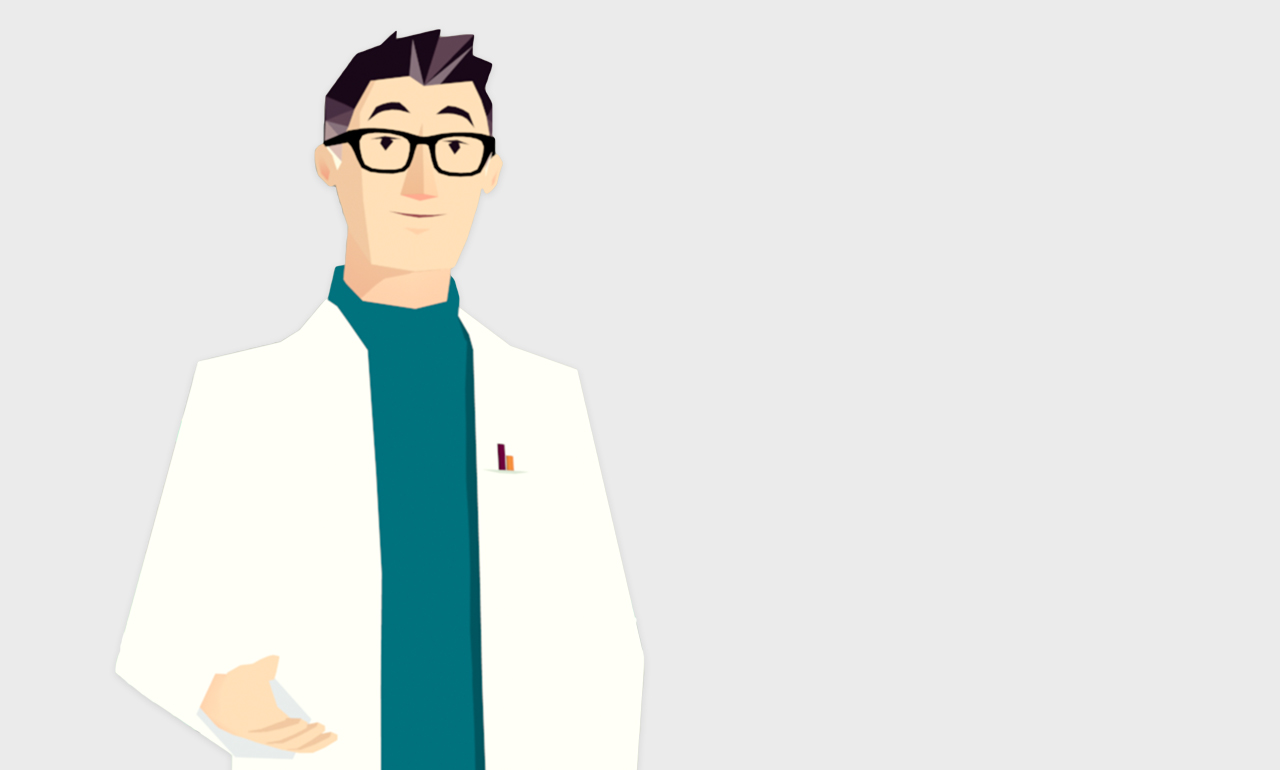Indications
-
ELIQUIS (apixaban) is a prescription
medicine used in adults to reduce the risk of stroke and blood clots in people who have atrial fibrillation (AFib), a type of irregular heartbeat, not caused by a heart valve problem. -
ELIQUIS (apixaban) is a prescription
medicine used in adults to treat blood clots in the veins of your legs (deep vein thrombosis-DVT) or lungs (pulmonary embolism-PE), and to reduce the risk of them occurring again after receiving treatment for blood clots. -
ELIQUIS (apixaban) is a prescription
medicine used in children from birth and older to treat blood clots in the veins of legs and lungs (venous thromboembolism) after at least 5 days of initial anticoagulant treatment, and to reduce the risk of them happening again. ELIQUIS was not studied and is not recommended in children weighing less than 5.7 pounds (2.6 kg). -
ELIQUIS (apixaban) is a prescription
medicine used in adults to help prevent a blood clot in the veins of your legs (deep vein thrombosis-DVT) and lungs (pulmonary embolism-PE) of people who have just had hip or knee replacement surgery.
Indications
-
ELIQUIS (apixaban) is a
prescription medicine used in adults to reduce the risk of stroke and blood clots in people who have atrial fibrillation (AFib), a type of irregular heartbeat, not caused by a heart valve problem. -
ELIQUIS (apixaban) is a
prescription medicine used in adults to treat blood clots in the veins of your legs (deep vein thrombosis-DVT) or lungs (pulmonary embolism-PE), and to reduce the risk of them occurring again after receiving treatment for blood clots. -
ELIQUIS (apixaban) is a
prescription medicine used in children from birth and older to treat blood clots in the veins of legs and lungs (venous thromboembolism) after at least 5 days of initial anticoagulant treatment, and to reduce the risk of them happening again. ELIQUIS was not studied and is not recommended in children weighing less than 5.7 pounds (2.6 kg). -
ELIQUIS (apixaban) is a
prescription medicine used in adults to help prevent a blood clot in the veins of your legs (deep vein thrombosis-DVT) and lungs (pulmonary embolism-PE) of people who have just had hip or knee replacement surgery.
Atrial fibrillation (AFib) is the most common type of irregular heartbeat. About 95% of AFib cases are not caused by a heart valve problem, also known as nonvalvular AFib. With AFib not caused by a heart valve problem, the upper chambers of the heart, the atria, quiver (fibrillate) instead of fully contracting to push blood through the heart. The blood left in the atria can pool and clump together, increasing the risk for clots to form. If a clot breaks loose and travels to the brain, it can cause a stroke. In fact, patients with AFib not caused by a heart valve problem have about 5 times greater risk of stroke. The cause of AFib isn’t always known, but it becomes more common over age 65.



Please see U.S. Full Prescribing Information, including Boxed WARNINGS and Medication Guide.
Some common symptoms of AFib not caused by a heart valve problem include irregular heartbeat, heart racing, dizziness, shortness of breath, and fatigue. However, some patients may not feel any symptoms at all. Whether or not you experience symptoms from your AFib, or if they come and go, you still have an increased risk of stroke.
If you or someone you know has AFib not caused by a heart valve problem, make sure you know the signs of stroke really well—knowing these can help you act fast and get immediate medical attention.
Remember, stroke is a medical emergency. If you notice any of the signs listed below, call 9-1-1 immediately.
- Sudden numbness or weakness of the face, arm, or leg, especially on one side of the body
- Sudden droopiness around the mouth while trying to smile
- Sudden trouble seeing in one or both eyes
- Sudden headache with or without vomiting and dizziness
- Sudden loss of balance or coordination
- Sudden trouble with speaking or understanding speech
Note the time when the signs first begin. This information is important for the doctor to know.
Anticoagulants are the most often prescribed blood thinners to reduce risk of stroke due to AFib not caused by a heart valve problem. Anticoagulants increase the risk of bleeding, which can be serious and may lead to death.
To learn more, watch the video below.



Please see U.S. Full Prescribing Information, including Boxed WARNINGS and Medication Guide.
It is projected that by 2030, about 12 million people in the U.S. will have AFib not caused by a heart valve problem.
To learn more about who may be at risk, watch the video below.



AFib not caused by a heart valve problem is typically considered a chronic condition when not temporarily caused by other factors. This means that it will most likely not go away on its own.
If someone you know has AFib not caused by a heart valve problem, it is important that they talk to their doctor about taking medication to help them reduce the risk of stroke. But since it is usually a chronic condition, they may also need advice, encouragement, and support. Here are some of the ways you can help:
Start by learning more about AFib not caused by a heart valve problem—Knowing more about it will not only help you understand what they are dealing with but also help you offer them informed support.
Be of assistance on doctor visits—Regular physician follow-ups are one of the most important steps a person with AFib not caused by a heart valve problem can take. Download a discussion guide to prepare questions you or your loved one may have for the next appointment.
Follow doctor’s recommendations—If someone you know is taking ELIQUIS, it’s extremely important that they take it as prescribed by their healthcare provider. They should not change their dose or stop taking ELIQUIS unless their healthcare provider told them to. Stopping ELIQUIS increases their risk of having a stroke.
Help with coverage assistance—You can start by organizing medical and health insurance information where everything is easy to find. Visit the ELIQUIS 360 Support page to learn more.
Lead by example—Chances are, a person with AFib not caused by a heart valve problem will be much more willing to take care of themselves—by eating well, keeping a regular schedule, meditating, taking a walk, etc.—if he or she is around another person who also leads a healthy lifestyle.
Many different factors such as lifestyle and medical conditions can raise the risk of developing AFib not caused by a heart valve problem. It is important to note that the risk of AFib increases with age, especially after age 65. Additional risk factors include, but are not limited to:
- High blood pressure
- Heart disease such as heart failure and ischemic heart disease
- Chronic kidney disease
- Diabetes
- Overactive thyroid
- Lung disease, including COPD (Chronic Obstructive Pulmonary Disease)
- Lifestyle habits, such as excessive alcohol and drug use, smoking, and stress
- Obesity
ELIQUIS may cause serious side effects, including: (1) Increased risk of blood clots if you stop taking ELIQUIS. ELIQUIS lowers your chance of having a stroke by helping to prevent clots from forming. Do not stop taking ELIQUIS without talking to the healthcare provider who prescribed it for you. Stopping ELIQUIS increases your risk of having a stroke. ELIQUIS may need to be stopped prior to surgery or a medical or dental procedure. Your healthcare provider will tell you when you should stop taking ELIQUIS and when you may start taking it again. (2) ELIQUIS can cause bleeding, which can be serious, and may lead to death. This is because ELIQUIS is a blood thinner medicine that reduces blood clotting. While taking ELIQUIS, you may bruise more easily and it may take longer than usual for any bleeding to stop. (3) People who take ELIQUIS, and have medicine injected into their spinal or epidural area, or have a spinal puncture, have a risk of forming a blood clot that can cause long-term or permanent loss of the ability to move (paralysis). (4) Do not take ELIQUIS if you currently have certain types of abnormal bleeding or have had a severe allergic reaction to ELIQUIS or any of the ingredients. This is not a complete list of all important safety information. Please see full Important Safety Information. Please see the U.S. Prescribing Information, including Boxed WARNINGS, and the Medication Guide for ELIQUIS (apixaban).
ELIQUIS is a type of blood thinner medicine known as an anticoagulant. Learn more about anticoagulants here.
Because AFib not caused by a heart valve problem is considered chronic and generally does not go away, the risk of stroke also does not go away. It is important that you continue to take ELIQUIS exactly as your healthcare provider prescribes.
Do not stop taking ELIQUIS without talking to the healthcare provider who prescribed it to you. Stopping ELIQUIS increases your risk of having a stroke.
Talk to your healthcare provider before any medical procedures. ELIQUIS may need to be stopped before surgery, or a medical or dental procedure. Your healthcare provider will tell you when you should stop taking ELIQUIS and when you may start taking it again. If you have to stop taking ELIQUIS your healthcare provider may prescribe another medicine to help prevent a blood clot from forming.
See Important Safety Information below.
Blood clots form through a chain of events that involves several clotting components that interact to cause red blood cells to form a clot. ELIQUIS selectively blocks one clotting factor, Factor Xa, and this makes it less likely that blood clots will form. ELIQUIS can cause bleeding, which can be serious, and may lead to death. This is because ELIQUIS is a blood thinner medicine that reduces blood clotting.
View a video to learn more about how ELIQUIS works.
Patients taking ELIQUIS do not need to have routine INR (International Normalized Ratio) blood testing.
Patients taking ELIQUIS do not have any known dietary restrictions, such as leafy greens.
ELIQUIS may need to be stopped before surgery, or a medical or dental procedure. Your healthcare provider will tell you when you should stop taking ELIQUIS and when you may start taking it again. If you have to stop taking ELIQUIS your healthcare provider may prescribe another medicine to help prevent a blood clot from forming. Be sure to talk to your healthcare provider before any surgeries or procedures, and if you have questions about stopping ELIQUIS before surgery.
Do not stop taking ELIQUIS without talking to the healthcare provider who prescribed it to you. Stopping ELIQUIS increases your risk of having a stroke.
See Important Safety Information below.
Determining the price you may pay for a medicine can be complicated and depends on many different factors, such as insurance coverage. For more information, view Pricing Information for ELIQUIS.
ELIQUIS can cause bleeding, which can be serious, and may lead to death. This is because ELIQUIS is a blood thinner medicine that reduces blood clotting. While taking ELIQUIS, you may bruise more easily and it may take longer than usual for any bleeding to stop.
You may have a higher risk of bleeding if you take ELIQUIS and take other medicines that increase your risk of bleeding, including:
- Aspirin or aspirin-containing products
- Nonsteroidal anti-inflammatory drugs (called NSAIDs)
- Warfarin
- Heparin
- Clopidogrel
- Selective serotonin reuptake inhibitors (SSRIs) or serotonin norepinephrine reuptake inhibitors (SNRIs)
- Other medicines to help prevent or treat blood clots
Tell your healthcare provider if you take any of these medicines.
Call your healthcare provider or get medical help right away if you have any of these signs or symptoms of bleeding when taking ELIQUIS:
- Unexpected bleeding or bruising, or bleeding that lasts a long time, such as:
- Unusual bleeding from the gums
- Nosebleeds that happen often
- Menstrual or vaginal bleeding that is heavier than normal
- Bleeding that is severe or you cannot control
- Red, pink, or brown urine; red or black stools (looks like tar)
- Red or black stools (looks like tar)
- Cough up blood or blood clots
- Vomit blood or your vomit looks like “coffee grounds”
- Unexpected pain, swelling, or joint pain
- Headaches, feeling dizzy or weak
See Important Safety Information below.

Talking With Your Doctor
Hear from a doctor, get tips from a nurse, and download a discussion guide to help you make the most of your time with your healthcare professional.

About ELIQUIS
Find out more about ELIQUIS, including clinical study results, possible side effects, and additional factors for you and your healthcare professional to consider.

Savings Resources
Learn about the Free Trial Offer and how eligible patients can potentially save on out-of-pocket costs with the ELIQUIS Co-pay Card.









